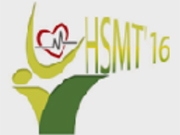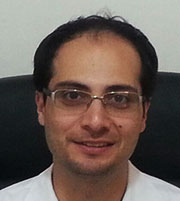Comparing Urine Analysis and Urine Dipstick Tests Used in the Diagnosis of Renal Injury in Children With Blunt Abdominal Trauma in Shiraz, Iran
- Details
- Written by Robab Sadegh, Somaye Mohebinejad, Razieh Sadat Mousavi-Roknabadi, Ali Ariafar, Afsaneh Dehbozorgi, Mehrdad Sharifi
- Parent Category: Year 2021, Volume 13
- Category: Volume 13, Issue 3, July-September 2021
- Hits: 1117
The most recent editorial (June 2021)
Ethics of Publishing Case Reports: Do We Need Ethics Approval and Patient Consent?
An editorial by Dr. Mehrdad Jalalian

The worldwide spread of COVID-19 as an emerging, rapidly evolving situation, and the dramatic need of urgent medicine or vaccine, has rapidly brought new hypotheses for pathophysiology and potential medicinal agents to the fore. It is crucial that the research community provide a way to publish this research in a timely manner.
To contribute to this important public health discussion, the Electronic Physician Journal is excited to announce a fast-track procedure to help researchers publish their articles on COVID-19 related subjects that fall under the broad definition of public health, internal medicine, and pharmacology. We are especially welcome to all hypotheses about the pathological basis of the COVID-19 infection and the possible characteristics of potential medicine and vaccine. Submit your manuscript here
Our previous editorial (June 2020)
Lessons from COVID-19 pandemic and the Morocco’s success story.
An editorial by Dr. Benksim Abdelhafid (Morocco)

The 6th World Conference on Research Integrity (WCRI) is to be held on June 2-5, 2019 in Hong Kong.
The WCRI is the largest and most significant international conference on research integrity. Since the first conference in Lisbon in 2007, it has given researchers, teachers, funding agencies, government officials, journal editors, senior administrators, and research students opportunities to share experiences and to discuss and promote integrity in research. Read more:

TDR Clinical Research and Development Fellowships
Call for applications
Deadline for submission: 7 March 2019, 16:00 (GMT)
TDR provides fellowships for early- to mid-career researchers and clinical trial staff (e.g. clinicians, pharmacists, medical statisticians, data managers, other health researchers) in low- and middle-income countries (LMICs) to learn how to conduct clinical trials. Read more:

Meta-Analysis Workshops in New York, USA, and London, UK, in April and May 2019
Don't miss this exceptional opportunity to learn how to perform and report a Meta-analysis correctly. Two Meta-analysis workshops are organized in April and May 2019 by Dr. Michael Borenstein in New York, USA (April 08-10, 2019) and London, UK (May 27-29).

About the Instructor
Dr. Michael Borenstein, one of the authors of Introduction to Meta-Analysis, is widely recognized for his ability to make statistical concepts accessible to researchers as well as to statisticians. He has lectured widely on meta-analysis, including at the NIH, CDC, and FDA. Read more:




















